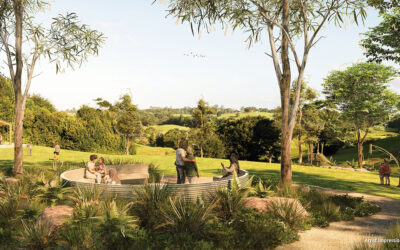If you are experiencing difficulty breastfeeding, you are not alone.
Recent research to celebrate World Breastfeeding Week (August 1 to 7) reveals that 9 out of 10 mums have faced challenges with breastfeeding. These include poor milk supply (22 per cent of respondents) and sore nipples (20 per cent), according to the survey by Medela Australia.
And even when mothers are facing such problems, most (52 per cent) feel under pressure to continue breastfeeding. However, it appears that a mum’s hardest critic is herself, rather than her partner, society, media and celebrities, with most mothers putting pressure on themselves to breastfeed.
Why do women feel pressured to continue breastfeeding?
The main reason mothers want to continue breastfeeding, even when they are experiencing problems, is the health benefits for their baby. According to the World Health Organisation, babies should be exclusively breastfed until six months of age and given a combination of breastmilk and solid foods up to at least two years old.
Despite this advice and other benefits of breastfeeding, including convenience and monetary savings, breastfeeding rates decline sharply as a baby gets older. According to the 2010 Australian National Infant Feeding Survey, 96% of mothers initiate breastfeeding. However, less than half (39%) of babies are still being exclusively breastfed to 3 months and less than one quarter (15%) to 5 months. Read more here.
A breastfeeding journey that has its challenges
Melissa Rolfe’s breastfeeding journey certainly had its challenges. Shortly after she gave birth, she was separated from her newborn son due to declining health and didn’t have an opportunity to breastfeed. During several attempts to breastfeed over the following days, the baby wouldn’t latch so she fed him expressed milk with a bottle. Determined not to give up, Melissa tried again to breastfeed when she and her son went home from hospital, but the troubles didn’t stop there.
“Occasionally he would latch with a nipple shield, but quickly my nipples became cracked, blistered and raw. Every feed was severe toe-curling pain and I dreaded it. Exclusive expressing was becoming too much, so I began to mix feed, and by about three weeks in I was exclusively formula feeding.
“However, when my bub was about five weeks old, I realised I wasn’t ready to give up and I saw an IBCLC (International Board Certified Lactation Consultant) who diagnosed a tongue tie. We had that cut and I began lactating again, boosting supply by expressing. At eight weeks old he latched for the first time, and it’s a moment I’ll never forget. However he was so used to bottles that every feed was a struggle to latch, and my nipples were getting cracked and blistered. Once again I was experiencing extreme pain so I began seeing the IBCLC twice a week.”
After further procedures to fully correct the tongue tie, which was still present, and another upper lip tie, Melissa says things finally began to improve: “By the time he was four-and-half months old I was exclusively breastfeeding. I fed in public for the first time at six months when latching became easy.”
Can a lactation consultant help?
Melissa overcame her struggles with the help of a lactation consultant. It is hoped that World Breastfeeding Week will remind mums that they are not alone and that help is available if they are having problems. Jarrod Percy, the Managing Director of Medela Australia, explains: “Breastfeeding Awareness Week is an opportunity to educate the wider community about the challenges mums face and the pressure they put on themselves to give their child the best start in life and to remind mums that they are not alone in their journey.”
According to Medela, most mums speak to their doctor or midwife about their concerns. Other organisations that can help include the Australian Breastfeeding Association. It offers mums practical advice and information and puts mothers in touch with local support groups. Find out more at www.breastfeeding.asn.au or call the free 24/7 Breastfeeding Helpline on 1800 686 268. To find a local lactation consultant, visit www.lcanz.org
And there is a wealth of online resources available, too. Mr Percy adds: “Fortunately, this generation of mums have access to personalised, instantly available resources, tools and communities online designed to inform and empower her along the way.”
Medela’s free MyMedela app provides advice, tips and tricks from experts on pregnancy, birth and breastfeeding, tracks and monitors breastfeeding times, and offers personalised product recommendations. Find out more at www.mymedela.com.au.
Keep Reading


